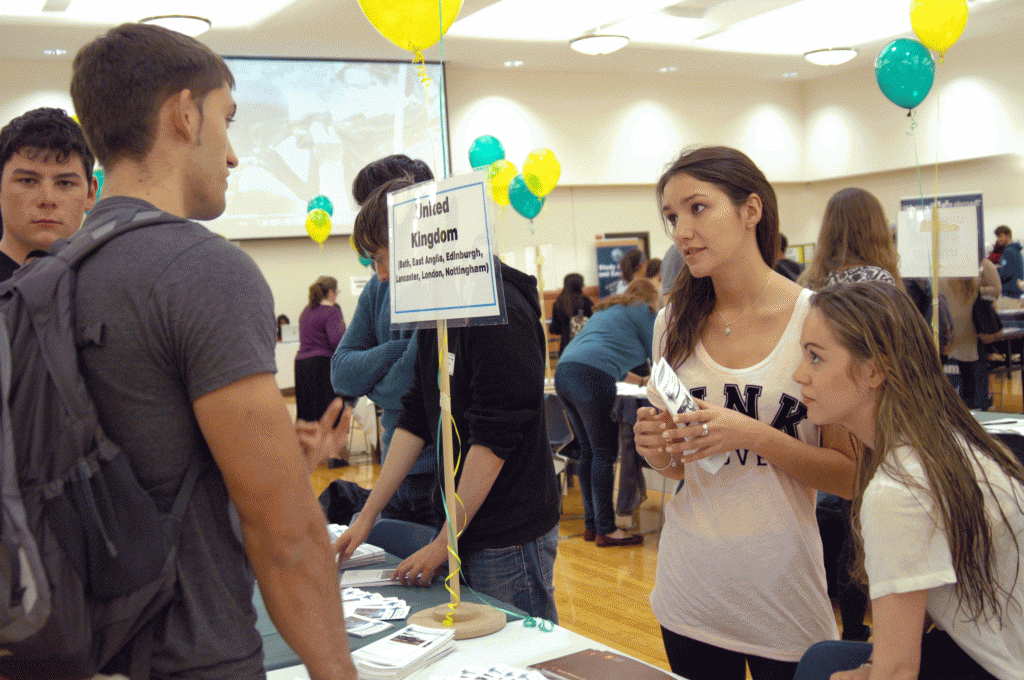
Binghamton University, along with some other SUNY schools, showcased the world of options available to students desiring to study abroad.
The event on Wednesday was meant to show students the reasons to consider studying abroad.
“Study abroad is something that should really be taken advantage of,” said Kerry Cook, assistant director for study abroad in the Office of International Programs. “There are over 900 SUNY programs that Binghamton students can access. The point of this fair is to bring our partners and other SUNY schools here so it’s a one-stop shop for all information on SUNY study abroad.”
Representatives from different schools touted their programs’ unique benefits. Krista Paszkowsky of the University at Buffalo emphasized the university’s six-credit engineering program.
“It’s called Engineering In Troyes, [France],” Paszkowsky said. “The language of instruction is English. The program has brought almost half and half Binghamton and UB students.”
Some students are finding ways to connect their majors to their study abroad programs.
“I’ve always wanted to go to Europe, CERN especially,” said Matthew Petryk, a sophomore majoring in physics.
Noelle Komatz, a sophomore majoring in English, also wanted to keep her focus when she studies abroad.
“I’m really looking into all the UK programs,” Komatz said. “I learned that they are really good for English. A lot of people say they’re the best ones to go on because of the historical background in London, Lancaster and Nottingham. Even Edinburgh in Scotland is really good for English.”
According to Cook, 18 percent of Binghamton students study abroad, well above the national average of 1 percent. Cook also said that the most popular time to study abroad is junior year.
Gaetana Di Roberto, a junior double-majoring in Arabic and French, said that going abroad seems like an easy decision.
“For me there are no cons to studying abroad,” Di Roberto said. “I guess the number one reason people wouldn’t would be the price. But as far as everything else, cultural immersion, language learning, there really is no downside.”
The actual cost of study abroad can vary greatly depending on the location and the duration of the trip, once housing costs are factored in.
According to the Office of International Programs’ website, participants of BU programs pay the University for their regular SUNY tuition, plus any applicable program fee.
Many students at the fair did not think cost would be a major inhibitor.
“The financial aid I’m getting from Binghamton University is also available for the study abroad programs,” said Matt Geiger, a graduate student studying business administration. “All the tuition that I pay for Binghamton this semester or next semester would be applied to that program.”
However, Geiger said his financial aid would not pay for a program that takes place during the winter or summer sessions.
Geiger said it is difficult for graduate students studying business to go abroad because many of the information sessions conflict with classes, which are often at night. But he still thinks studying abroad is a worthwhile investment.
“My undergraduate was in international business and I would like to get some more cultural experience and research experience in business oversea,” Geiger said. “It looks good on a resume and I really haven’t had much experience other than vacations and traveling.”


